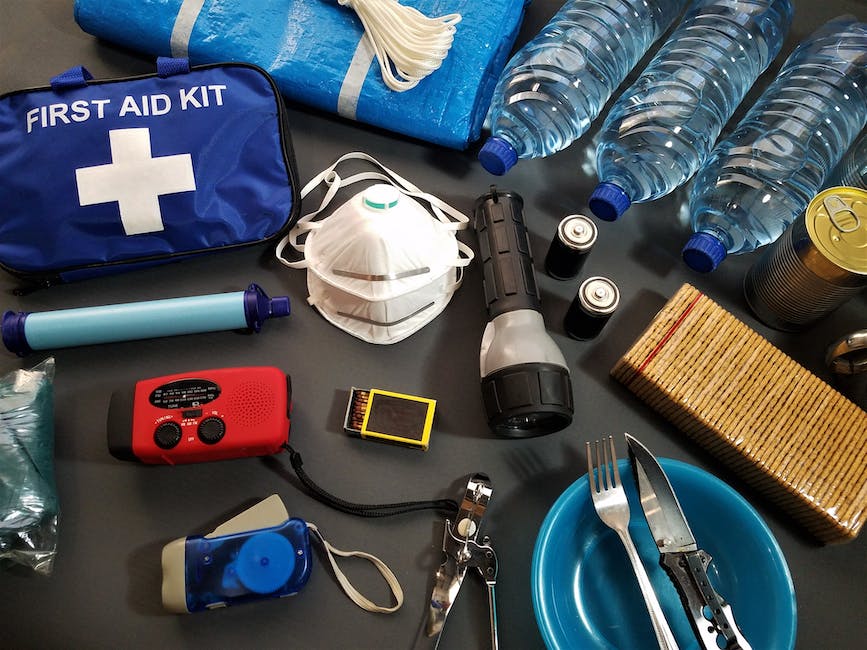Traveling can be one of the most enjoyable and fulfilling experiences of your life, but it can also come with unexpected risks and expenses. That’s why it’s always a good idea to get travel insurance before you go on a trip. In this article, we will help you figure out how to choose the right travel insurance plan for your needs.
Why Travel Insurance is Important?

As mentioned earlier, purchasing travel insurance can provide you with financial protection in case of unexpected events while you are traveling. These can be anything from a medical emergency, cancellation of your trip, to lost or stolen luggage. All of these situations can put a significant financial burden on you if you’re not prepared. However, if you have travel insurance, it will give you peace of mind knowing that you’re financially covered, and you won’t have to worry about unexpected expenses.
For example, suppose you’re on a trip and suddenly have a medical emergency that requires hospitalization. Without travel insurance, you will be responsible for all medical expenses, including hospital bills, ambulance trips, and doctor’s fees. However, if you have travel insurance, you’ll be protected from these expenses, and you can get medical treatment without worrying about costs.
Similarly, if you lose your passport or have your luggage stolen, your travel insurance plan can cover the costs of replacing them. This way, you won’t have to deal with losing your money on a trip that’s already stressful enough.
What to Look for When Choosing a Travel Insurance Plan?

Now that you know why travel insurance is important, let’s talk about what you should look for when choosing a plan. The first thing you should consider when choosing a travel insurance plan is what kind of coverage it provides. Look for a plan that offers coverage for the specific risks you may encounter on a trip. These could include medical expenses, trip cancellations, lost or stolen baggage, and emergency evacuation. The next thing you should check is the amount of coverage the plan provides for each of these risks. Some plans may have lower limits for certain risks, so it’s always a good idea to check this before purchasing.
You should also pay attention to the deductible and the maximum coverage limit of each plan. A deductible is the amount of money you need to pay before your insurance plan starts covering the rest. The maximum coverage limit is the highest amount your insurer will pay out for a claim. It’s essential to choose a plan with a deductible and maximum coverage limit that fits your needs and budget.
How to Compare Travel Insurance Plans?

When comparing travel insurance plans, it’s essential to read and compare the coverage amounts and exclusions carefully. Check for exclusions for events that are unlikely to happen on your trip so that you can save money on the plan. You should also pay attention to the maximum coverage limit and deductible to ensure that they meet your needs. Additionally, look for plans that offer additional features, such as medical evacuation coverage or rental car damage coverage, that may be important to your travel plans.
What Types of Travel Insurance Plans are Available?

When it comes to travel insurance, there are several types of plans available. These include single trip plans, multi-trip plans, and annual plans. If you’re planning one trip, a single trip plan is an excellent option. However, if you plan to travel multiple times throughout the year, you may want to consider multi-trip plans or annual plans. These plans are generally more cost-effective, but you need to look for the one that best fits your travel habits.
What Does a Comprehensive Travel Insurance Plan Cover?

Comprehensive travel insurance plans provide a wide range of coverage, including medical expenses, trip cancellation, lost or stolen baggage, and emergency evacuation. Additionally, they may also provide coverage for accidental death and dismemberment, travel delays, and rental car damage. Comprehensive travel insurance plans are an excellent choice for travelers who want maximum protection.
Suppose you’re planning a trip to a remote area with limited medical facilities. In that case, you should look for a comprehensive plan that provides medical evacuation coverage, which allows you to get medical treatment and transportation to the nearest medical facility in case of a medical emergency.
What is Medical Evacuation Coverage?
Medical evacuation coverage is a feature of travel insurance that provides transportation to the nearest medical facility for treatment in case of a medical emergency. This coverage is particularly important if you’re traveling to a remote area with limited medical facilities. Medical evacuation can be costly, and if you don’t have travel insurance that covers this, you could end up paying thousands of dollars out of your pocket.
How to File a Travel Insurance Claim?
If you need to file a travel insurance claim, you need to submit documentation of the event that caused the loss or expense, such as a police report for a stolen bag or a medical report for a medical emergency. It’s important to keep all documentation related to your travel insurance claim so that you can receive reimbursement. Additionally, make sure to file your claim as soon as possible so that you can get reimbursed promptly.
What is a Pre-Existing Medical Condition?
A pre-existing medical condition is a health problem that you had before purchasing your travel insurance plan. Some travel insurance plans may exclude coverage for pre-existing medical conditions or limit coverage for them. It’s important to check the policy carefully before purchasing to know what risks are excluded.
Suppose you have a pre-existing medical condition that requires medical treatment on the trip. In that case, you should look for a travel insurance plan that covers this condition. Some plans may cover pre-existing medical conditions, but there may be additional requirements, such as a waiting period or proof that the condition is stable. Make sure to read the fine print to learn the terms and conditions of the policy.
What are the Common Exclusions in Travel Insurance?
Common exclusions in travel insurance include losses due to adventure sports, war, terrorism, and mental illness. Some travel insurance plans may also exclude coverage for pre-existing medical conditions or limit coverage for older travelers. It’s essential to read the policy carefully to ensure that you’re aware of the exclusions and make an informed decision when purchasing your travel insurance plan.
When is the Best Time to Purchase Travel Insurance?
The best time to purchase travel insurance is as soon as you’ve made a deposit on your trip. This will ensure that you’re covered if you need to cancel your trip due to an unexpected event. However, you can purchase travel insurance at any time before your departure date, so make sure to buy it before your trip begins.








 You might also be interested in those articles related to solo traveling
You might also be interested in those articles related to solo traveling